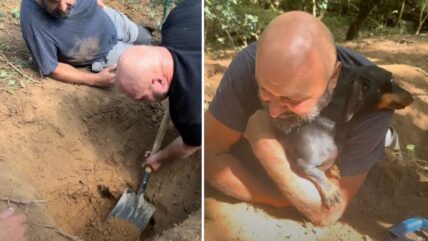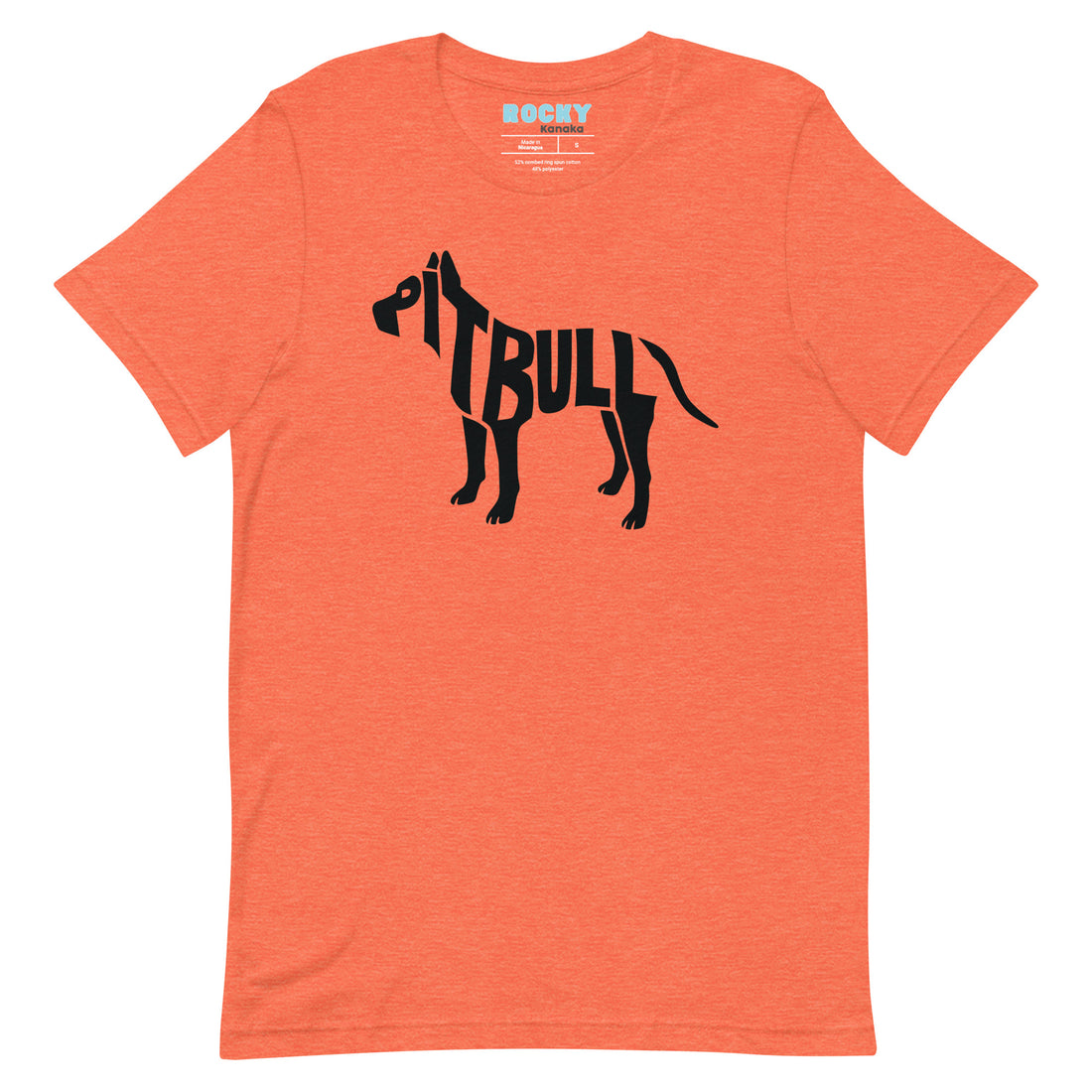After Years of Heartbreak, Senior Dog Finds Love—Then Came the News No One Expected
Bentley, a senior dog in a Phoenix, Arizona shelter, was fading fast—shut down, heartbroken, and distrustful of humans. That is, until he was placed in a foster-to-adopt home, giving him a chance to heal and leave his painful past behind.
Since arriving in his foster home in December 2024, Bentley has been slowly learning to trust again. Just as hope was returning to his story, a heartbreaking twist emerged—Desert Dog Project recently revealed that Bentley may have a brain tumor, casting a shadow over his fragile progress.
An Episode That Changed Everything
It took months for Bentley to come out of his shell and begin trusting the humans in his foster home. But once he did, his gentle and affectionate nature began to shine. He was treated for an ear infection and kennel cough, and for the first time in a long while, Bentley looked healthy and happy.
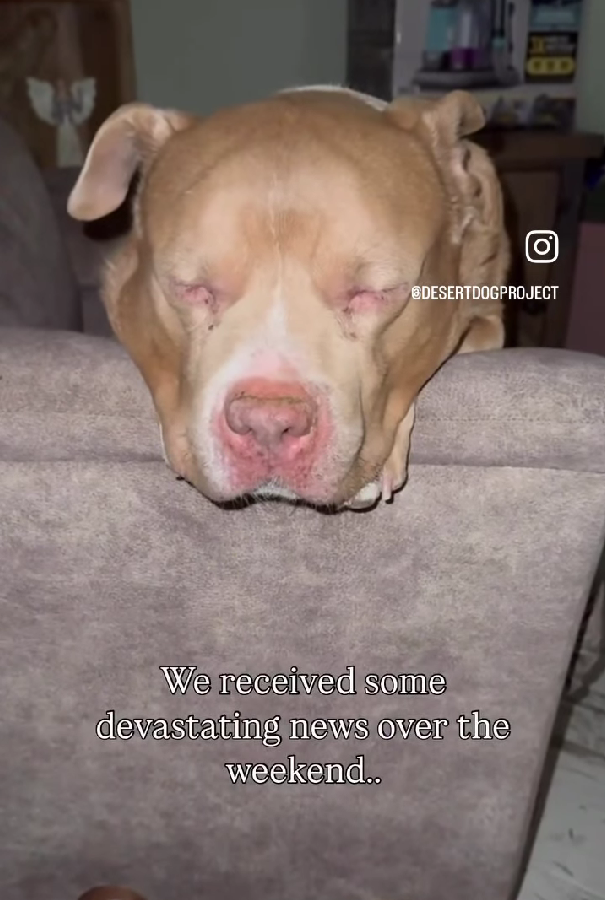
Then, in March 2025, Bentley experienced an episode of circling and disoriented behavior. A vet visit revealed a heartbreaking possibility—his symptoms pointed to a potential brain tumor. Due to his advanced age, treatment options are sadly limited.
For now, Bentley is on steroids to help manage his condition, and his foster family, along with dedicated shelter volunteers, are working closely with the vet to monitor his comfort and quality of life.
Can You Ensure Love And Comfort For Bentley?
From being one of the most shut-down dogs at the shelter to blossoming into a loving companion, Bentley has come a long way. Thanks to the unwavering care of his foster family, he’s finally known kindness—and now, they’re doing everything they can to support him through the final chapter of his life.
All anyone wants now is to ensure that Bentley’s remaining time is filled with peace, comfort, and love. But to make that possible, this sweet senior dog needs your help. Your donation can support his medical care and give him the quality of life he truly deserves. Visit this link to donate.
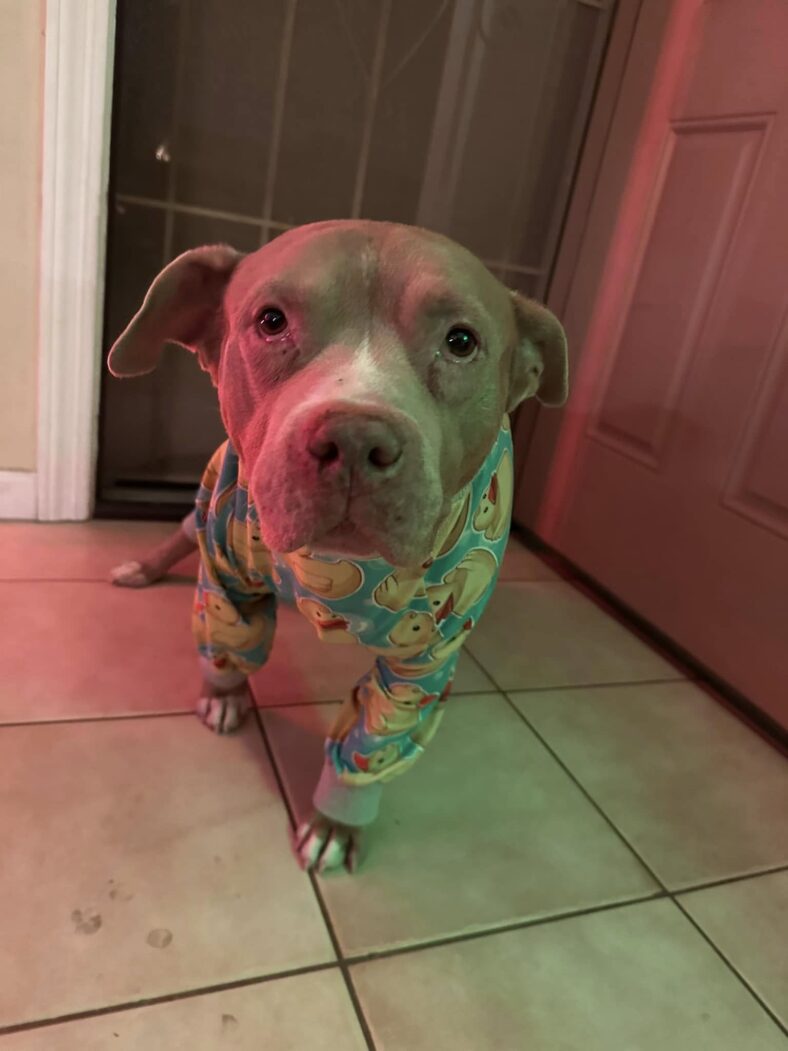
Pet Rescue Advocate Rocky Kanaka says about the dog, “Bentley spent a lifetime waiting for kindness—and now that he has it, we owe him the dignity of comfort, care, and peace.”
What is a Brain Tumor in Dogs?
Since Bentley has a brain tumor, it’s natural to wonder about the condition, what it is, its symptoms, and possible treatment. Let’s find out.
In dogs, tumors are abnormal growths of tissue that can pop up almost anywhere, including the brain. Veterinarian, Dr. Veronica Higgs states, “There are two broad categories of tumors: benign (not cancer) and malignant (cancer). Brain tumors are classified as primary or secondary.”
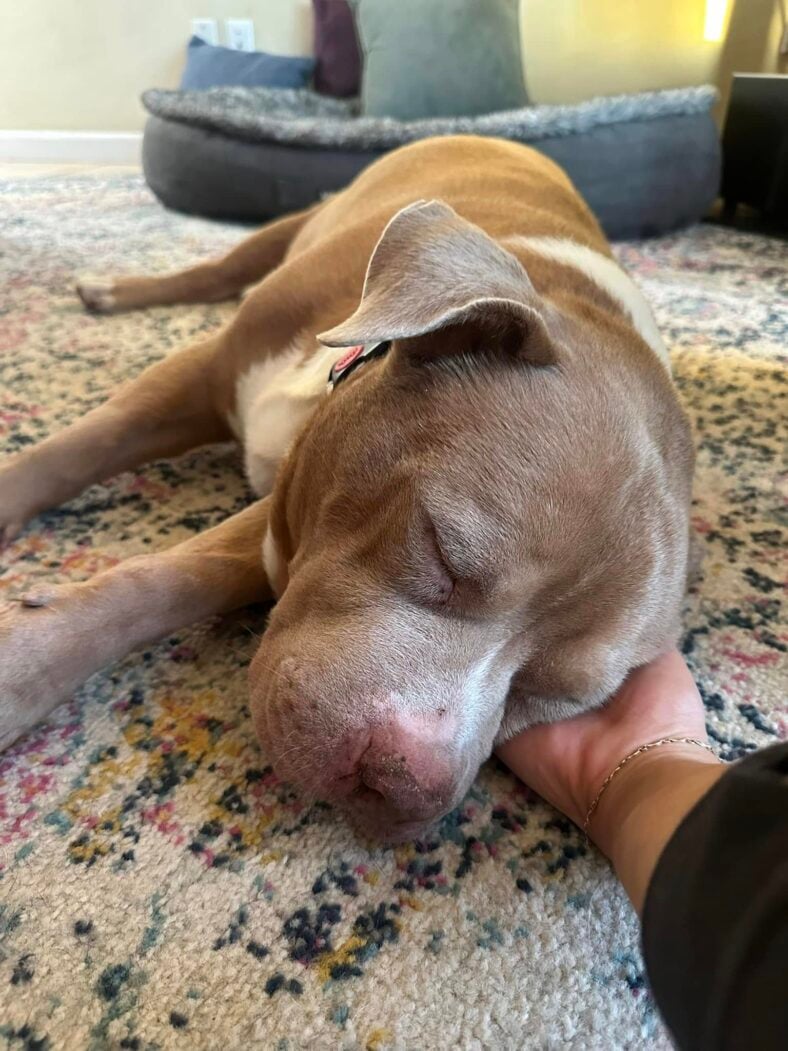
Primary brain tumors originate right in the brain or its surrounding layers, known as the meninges. Think of them as homegrown problems.
Secondary brain tumors, on the other hand, are unwanted visitors. They start elsewhere in the body and then spreads to the brain through metastasis, where rogue tumor cells break free and travel to a new location, or invasion, where a tumor migrates to neighboring tissues.
Signs of Brain Tumors in Dogs
The symptoms of brain tumors in dogs can be quite telling. A Reddit user, u/OptiGuy4u, says, “Our 4-year-old boxer just had to be put down because of brain cancer, and the symptoms were very neurological. Twitching/jolting, mini seizures, loss of balance.”
Here’s what to look out for, as per Dr. Higgs:
- Seizures are the most common symptom
- Your dog might become super sensitive to touch, especially around the head or neck area.
- Vision problems can arise, making everyday activities a challenge.
- Uncoordinated or unsteady movement can be a giveaway, as if your dog’s lost its footing.
- Abnormal behaviors might start to appear, like repetitive circling or increased reactivity – your dog might seem on edge.
- Lethargy or excessive tiredness can set in, leaving your dog feeling sluggish.
- A decrease in appetite is another red flag.
- A persistent head tilt can be a curious symptom.
- In some cases, your dog might lose control over urination or bowel movements.
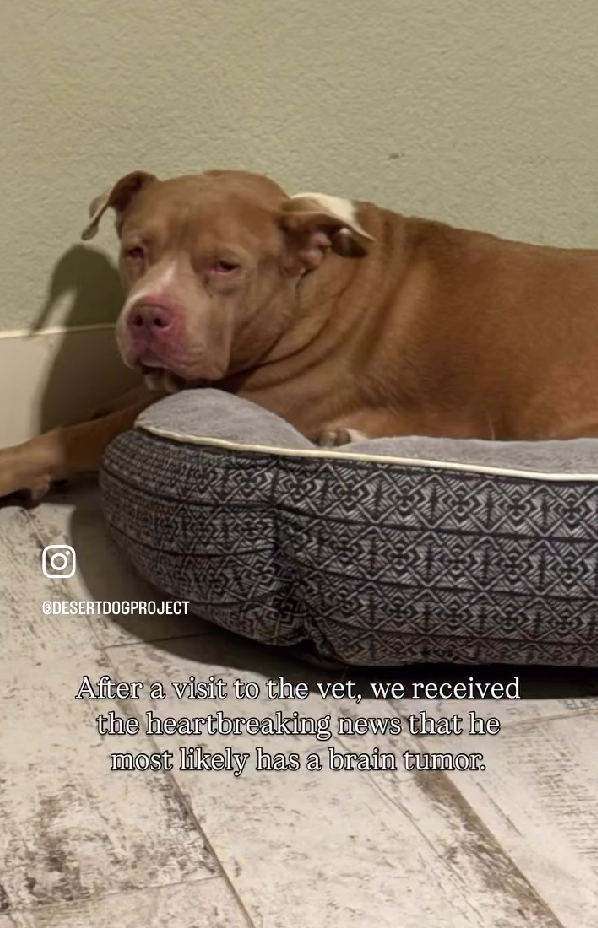
Keep an eye out for these signs, and if you notice anything off, it’s time to consult with a vet.
What Causes Brain Tumors in Dogs?
The exact cause of brain tumors in dogs remains unknown, but research suggests a mix of factors like diet, environment, genetics, and immune system health may contribute. Dogs over 5 years of age are more likely to develop brain tumors.
Certain dog breeds are at higher risk, including dolichocephalic breeds (Collies, Greyhounds, Dachshunds) with elongated heads and noses, which are prone to meningioma.
Brachycephalic breeds (Pugs, Bulldogs, Boxers) with shorter noses and flatter faces are more likely to develop glioma. These breeds are more susceptible to specific types of brain tumors, making them a higher-risk group. Age and breed are key factors.
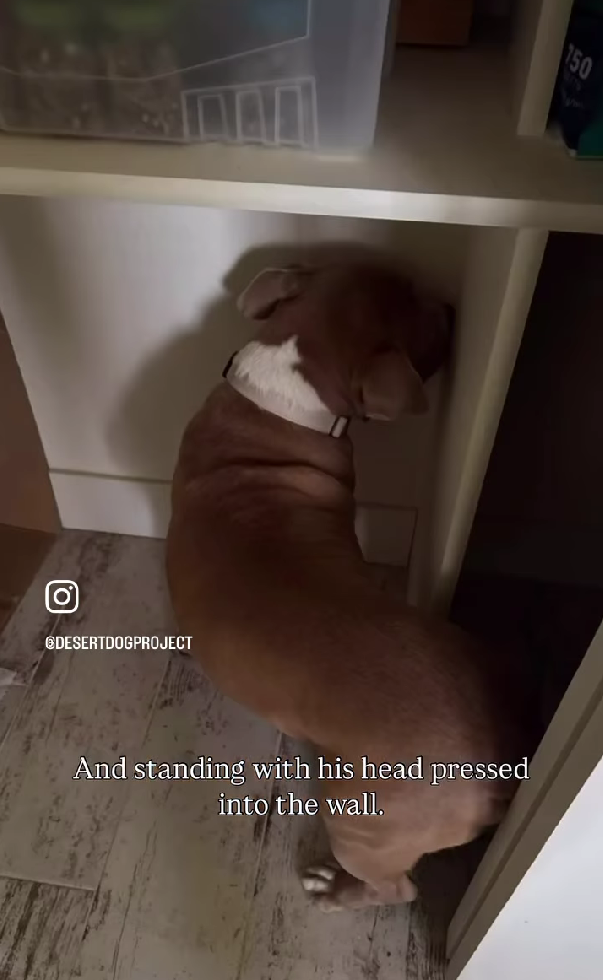
Treatment for Brain Tumors in Dogs
Treating brain tumors in dogs depends on the specific type of tumor diagnosed. There are three main treatment options, according to Dr. Catherine Barnette and Dr. Robin Downing:
- Neurosurgery: A highly specialized procedure performed by a board-certified veterinary surgeon.
- Radiation therapy: Can be used alone or in combination with other treatments to target the tumor.
- Chemotherapy: Medication that may shrink the tumor and alleviate symptoms.
Additionally, steroids can be used to reduce fluid buildup and slow tumor growth in dogs with brain tumors, often leading to significant improvement in symptoms for weeks or months. Anti-seizure medications may also be prescribed to manage seizures associated with the brain tumor.
FAQs (Frequently Asked Questions)
What are the symptoms of a brain tumor in elderly dogs?
The symptoms of a brain tumor in older dogs are generally similar to those of any other dog. However, as per ImpriMed, “In older dogs especially, the development of a brain tumor may present with gradual changes, making early signs sometimes easy to confuse with the natural aging process.”
How are brain tumors diagnosed?
Veterinarians diagnose brain tumors in dogs through physical exams, bloodwork, imaging tests like CT scans or MRI scans, and biopsies to confirm the presence and type of tumor.
What is the median survival time for a brain tumor in dogs?
Catherine Chan, a vet oncologist, states that the outlook for dogs with brain tumors is generally poor, with an average survival time of about two months without treatment. However, with proper care and treatment, most dogs can experience significant improvement.



